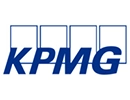Specializations
Courses Available
Courses

MBA without a GMAT in a top business school possible?
MBA without a GMAT in a top business school possible?,Feb 12, 2024
Online MBA Programs
Feb 12, 2024
5557 Views
- Share:
In the realm of business education, the Master of Business Administration (MBA) remains one of the most sought-after degrees for aspiring students including working professionals who are seeking to advance their careers and broaden their skill sets. Traditionally, the Graduate Management Admission Test (GMAT) has been a staple requirement for admission to prestigious MBA programs worldwide. However, in recent years, there has been a growing trend towards MBA programs waiving the GMAT requirement. This shift raises the pertinent question: Is pursuing an MBA without a GMAT feasible in a top business school?
Also Read: Best 10 Job Oriented courses after 12th in 2024
What is GMAT?
The Graduate Management Admission Test (GMAT) is a standardized test designed to assess the analytical, verbal, and quantitative skills of students seeking admission to graduate management programs, particularly Master of Business Administration (MBA) programs. Developed and administered by the Graduate Management Admission Council (GMAC), the GMAT is widely recognized and accepted by business schools worldwide. The exam consists of multiple-choice questions and an essay-writing section, covering topics such as arithmetic, algebra, geometry, grammar, and critical reasoning. With a duration of approximately four hours, the GMAT aims to provide admissions committees with a standardized measure of a candidate's academic preparedness and potential for success in graduate-level business studies. High GMAT scores are often considered favorable by business schools and can enhance a candidate's competitiveness in the admissions process.
Why GMAT exam is required?
The Graduate Management Admission Test (GMAT) serves as a crucial component of the MBA admissions process for many top business schools worldwide. It is required primarily for its ability to assess candidates' analytical, quantitative, verbal, and reasoning skills, providing admissions committees with a standardized metric to evaluate applicants' readiness for the rigorous academic demands of an MBA program. The GMAT serves as a benchmark for comparing candidates from diverse academic and professional backgrounds, ensuring fairness and consistency in the admissions process. Additionally, the GMAT is valued for its predictive validity, as research has shown a correlation between GMAT scores and academic performance in MBA programs. Overall, requiring the GMAT helps business schools identify candidates who demonstrate the intellectual aptitude and potential to thrive in a challenging academic environment and succeed as future business leaders.
The Changing Landscape of MBA Admissions
In recent years, however, there has been a noticeable shift in MBA admissions policies, with an increasing number of business schools opting to waive the GMAT requirement or offer alternatives for prospective applicants. This shift reflects a recognition of the evolving nature of business education and the need to attract a diverse pool of candidates with varied backgrounds and experiences. Additionally, it acknowledges the limitations of standardized testing in accurately assessing the potential of an individual for success in an MBA program.
Also Read: Low CAT score? Don't worry you can must do
Factors driving the exemption trend
- Diversity and Inclusion: Diversity and inclusion are becoming more and more of a priority for business schools worldwide as they see the benefits of accepting applicants from a range of professional, academic, and cultural backgrounds. Business schools might draw in more people who might do well on standardized tests but may struggle in other areas if the GMAT requirement is waived.
- Professional Experience: Many MBA programs place greater emphasis on candidates' professional experience, leadership potential, and academic achievements beyond standardized test scores. Waiving the GMAT requirement enables schools to evaluate candidates holistically, considering their work history, accomplishments, and potential for contributing to the MBA cohort.
- Adapting to Industry Trends: The business landscape is constantly evolving, with an increasing emphasis on skills such as collaboration, creativity, and adaptability. Some business schools believe that traditional standardized tests like the GMAT may not fully capture these qualities. As a result, they choose to assess candidates through alternative means, such as interviews, essays, and letters of recommendation.
Pros and Cons of Pursuing an MBA Without GMAT
| Pros | Cons |
| Waiving the GMAT requirement makes MBA programs more accessible to candidates who may not perform well on standardized tests but possess other valuable skills and experiences. | Some stakeholders may perceive MBA programs without GMAT requirements as less rigorous or prestigious compared to those that require GMAT scores. |
| Admissions committees can assess candidates based on a broader range of criteria, including professional accomplishments, leadership potential, and personal attributes. | Without GMAT scores, it may be challenging for admissions committees to benchmark candidates' academic abilities against a standardized metric. |
| Waiving the GMAT requirement promotes diversity and inclusion within MBA cohorts, enriching the learning experience for all students. | Waiving the GMAT requirement could potentially dilute the quality of the MBA cohort if admissions criteria are not carefully calibrated to ensure that admitted candidates meet academic and professional standards. |
Documents required for an Online MBA Abroad Program without the GMAT
Individuals who are willing to apply to an online MBA program abroad might have to face an extensive process. However, there are several worthwhile opportunities exist for those willing to compile the necessary documentation. At a minimum, most business schools/ universities require prior education transcripts including mark sheets, passing certificates, essays, letters of recommendation, a CV, proof of English proficiency if applicable, copies of IDs, and an application fee.
Key Points:
- Prior educational certificates such as mark sheets and passing certificates represent a strong academic history from all universities attended. Good grades in challenging coursework are preferred.
- Application essays allow applicants to articulate career goals and qualifications persuasively. Tight writing and organizational skills are expected.
- Professional letters of recommendation provide credible support for abilities, skills, and potential in an MBA setting. Ideally from managers or professors.
- Detailed, updated CV summarizes the entire academic and professional background in one place. Quantifiable achievements are preferred.
- English fluency of candidates often must be proven through TOEFL, IELTS, or Duolingo scores meeting set minimums. Varies based on country and program.
- School application portals require a passport, driver’s license, national ID, or similar verification. Follow formatting guidance carefully.
- Substantial nonrefundable application fee, from as low as $50 up to $250, payable through accepted online methods only.
- Covering all these bases requires attention to detail, determination, and resources. Those able to check off all documentation demands signal readiness for online MBA success better than any GMAT score could.
Why are Working Professionals Opting for Online Global MBA Programs?
Working professionals should consider opting for an online MBA global program due to its unparalleled flexibility, accessibility, and global perspective. Unlike traditional on-campus programs, online MBA global programs allow working professionals to pursue advanced and quality education without interrupting their careers or personal lives. With flexible scheduling and remote learning options, working professionals can balance their work commitments while advancing their skill sets and qualifications. Additionally, online MBA global programs often offer a diverse cohort of students from around the world, providing opportunities for networking and collaboration on a global scale. Moreover, these programs typically feature a curriculum tailored to address the complexities of the global business environment, equipping professionals with the knowledge and expertise needed to succeed in international markets. Overall, opting for an online MBA global program empowers working professionals to enhance their career prospects, expand their professional networks, and gain a comprehensive understanding of the global business landscape.
Also Read: CAT preparation 2024 with online MBA Degree: is it worth it?
Frequently Asked Queries
A1. Yes, several reputable business universities/ schools around the globe offer MBA Programs that do not require GMAT scores for admission.
A2. Eligibility criteria vary by university/ school but may include a minimum GPA, relevant work experience, strong academic background, and other standardized test scores such as GRE or SAT.
A3. While GMAT scores can be one measure of academic readiness, not having them may require applicants to provide additional evidence of their academic abilities and potential for success in the program. Additionally, some employers or industries may place more emphasis on GMAT scores for certain roles or positions.

Meet Our Counselling Experts
Get 100% Free Career Counseling




PlacementPartners










Schedule Your 30 min Couselling Session With Today!!
Select a Date of your choice :
You Have Selected Slot on .

